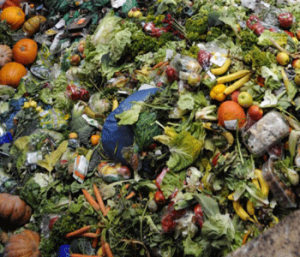By Michael Smith
Guest Writer for Wake Up World
Every year around the world, at least 1.3 billion tons of food is being wasted. Some of that waste occurs in our very homes, some is lost between the field and the grocery store, and some discarded by the stores themselves. The cumulative effect is that we waste more food than we would need to feed the entire planet’s population several times over.
Stores will look to always have “fresh” food – whether this is fruit and vegetables, bread and meat – on display on their shelves until the very end of the business day. And, here comes the hammer, much of that bread and fruit and vegetables is then tipped into dumpsters simply because they are no longer be fresh enough to sell the next day. Appearance counts here! Despite a food’s actual shelf life.
[pro_ad_display_adzone id=”110028″]
The problem, however, starts at field level during harvest when much of the food, particularly fruits and vegetables, is rejected by the farmer or retailer, as it does not meet the “standards” that consumers have learned to expect. Thus “misshapen” fruit and veg and those with blemished are being thrown out and destroyed.
More of it perishes in transit, as the distance from field to supermarket is often way too long. Then more is wasted by the stores, and in the end by the consumers, who often have no idea what to do with anything that looks a little less appetizing. Stores typically destroy any leftovers. Thus more than a billion plus tons of food ends up in the bin.
Today, many people have forgotten how to cook from scratch properly, and have no idea what to make from leftovers. Many are loath to eat leftovers at all, especially many youngsters who have come to expect plenty and fresh all the time. Furthermore, the philosophy that “too much is better than not enough” is generally applied in Western homes, and thus too much gets made… which then gets thrown away because no one wants leftovers.
And in the developed world we behave like this there is a supposed food shortage in the world!
In the United States, organic waste is the second highest component of landfills, which contribute to methane emissions in our environment. This waste also extends to the waste of the resources used in food production, such as water, land, energy and carbon emissions, all of which have a negative impact on our environment.
There is no food shortage, there is just too much wastage. The system is cock-eyed, as is the way we deal with food.
Article reference
http://www.unep.org/wed/quickfacts
Previous Articles by Michael
- Making Use of Juicer Pulp Residue
- Australian Government Set to Seize Money from Citizens Bank Accounts
About the Author
Michael Smith (Veshengro) is the editor of Green (Living) Review
[pro_ad_display_adzone id=”110027″]







